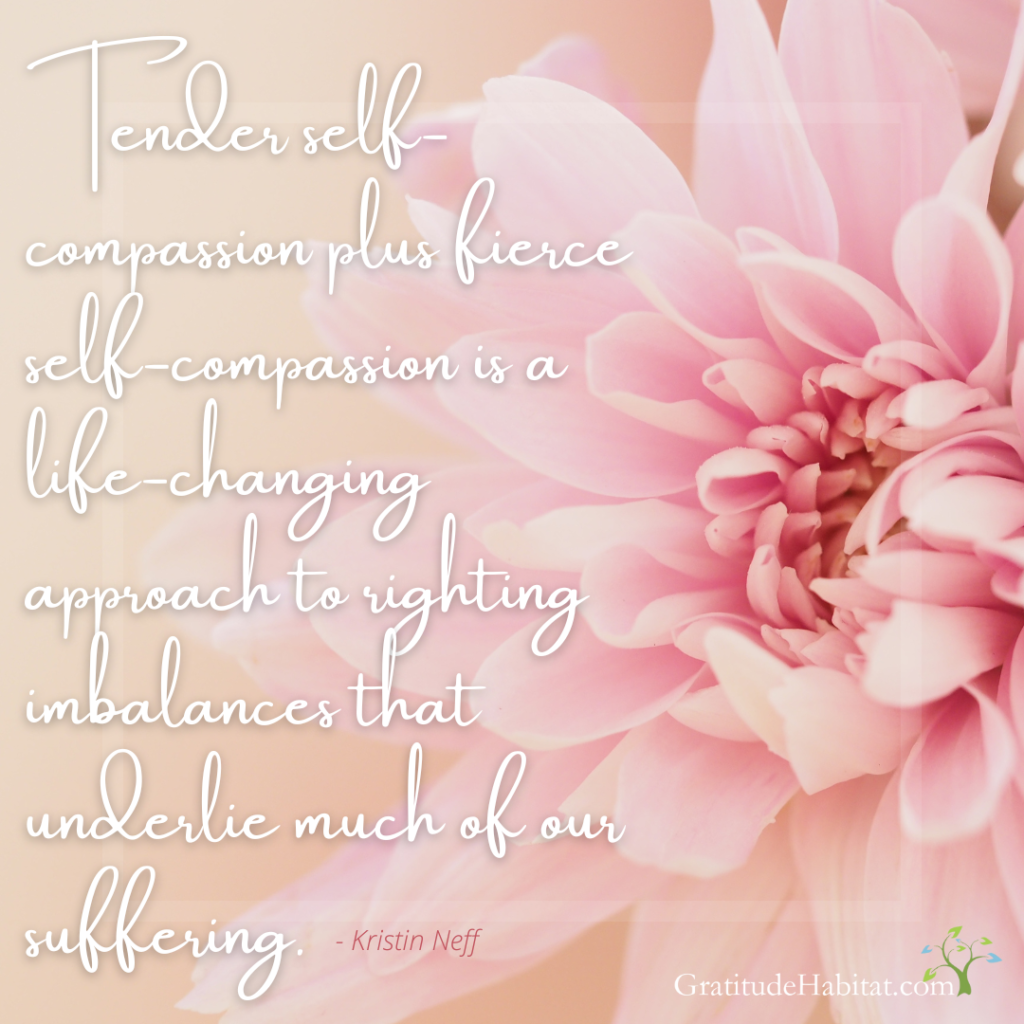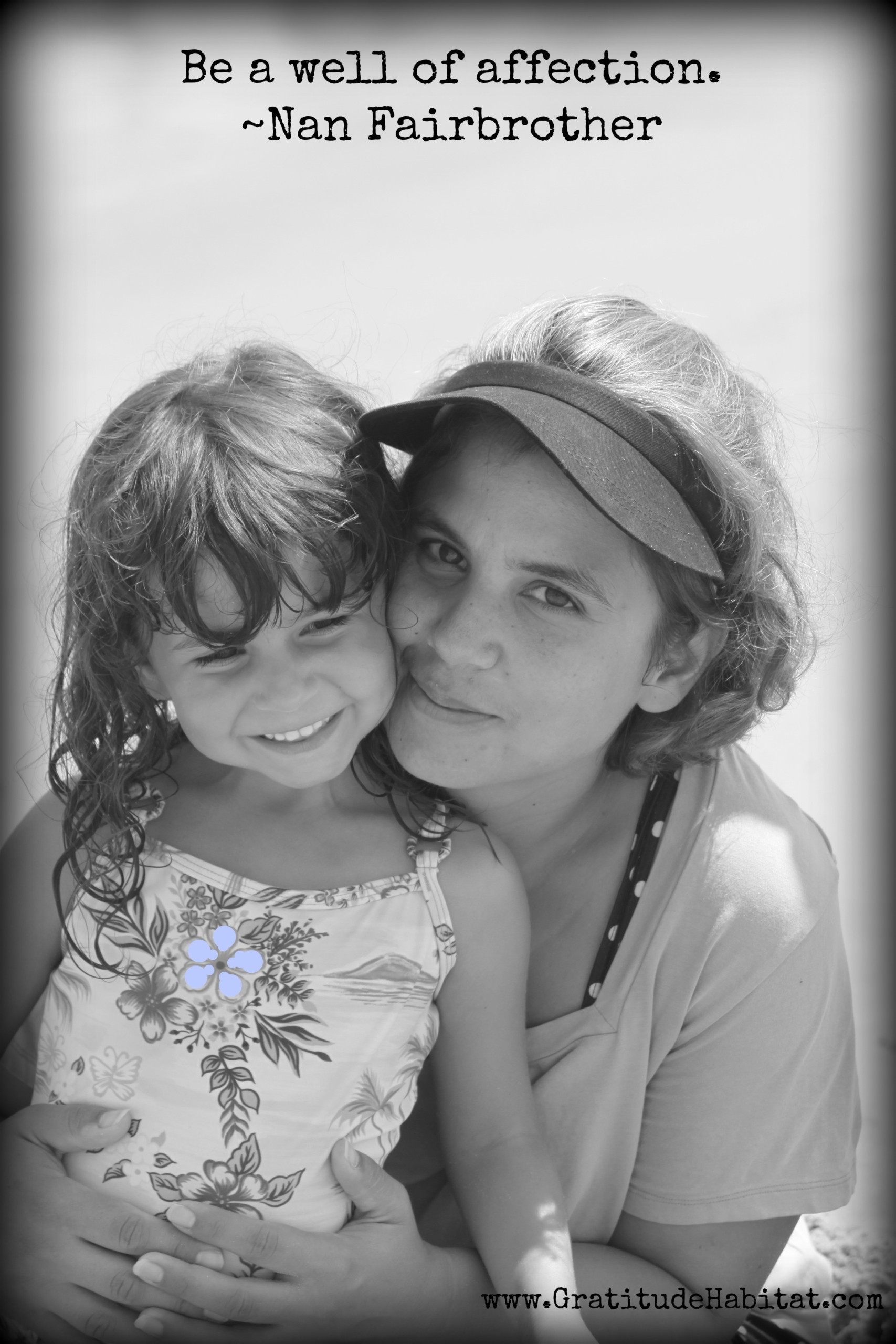Living In Gratitude: Self-Compassion
Self-compassion is a more effective motivator than self-criticism because its driving force is love, not fear.
– Kristin Neff
A pioneer in self-compassion, Dr. Kristin Neff has researched this trait for over 20 years. In her most recent book, Fierce Self-Compassion, she discusses the duality of self-compassion as equal parts tenderness and fierceness.
Self-compassion extends kindness and understanding to oneself in situations of perceived inadequacy, failure, or general suffering. Self-compassion is positive, rewarding, and intrinsically energizing. By opening our hearts, we open up to an infinite abundance of compassion. The more it flows inward, the more it can flow outward, explains Neff.
Tender self-compassion helps us to be kind and gentle to ourselves. It guides us to the realization that we are only human, that we are bound to make mistakes, to encounter failure and setbacks.
Fierce self-compassion empowers us to stand up for ourselves, to be courageous, protective, and authentic. Dr. Neff says that fierce self-compassion is a superpower, helping us reinforce and stand firm to our boundaries.
Tender self-compassion is not about finding ways to avoid accountability, acquiesce, or capitulate. It is the space where we hold ourselves with love, understanding, and kindness, realizing that we are all connected.
Fierce self-compassion is not about being self-righteous, overbearing, or hostile. It is not about being selfish, aggressive, or creating an Us VS Them mentality.
When we embody tender and fierce self-compassion, we can be loving and courageous, kind and empowered. We can use our voice to protect ourselves, fulfill our needs, and achieve our goals.

“Tender self-compassion plus fierce self-compassion is a life-changing approach to righting imbalances that underlie much of our suffering,” explains Dr. Neff. “It allows us to claim our power.”
This potent combination helps us to overcome self-criticism, which often arises from anger turned inward. When we recognize that anger is a guidepost, we can step into loving courage to respond to things that go against our values.
The combination of cooperation and caring melded with self-assertion and agency is a powerful force that can be used for others and ourselves. It is a caring force that transforms our power.
Sometimes we need to step into our fierce self-compassion, and in other situations, accessing our tender self-compassion serves us best. But, says Neff, we always need both.
Numerous studies show that individuals who can be firm and authentic are happier and more satisfied with their lives than those less assertive. People who balance tender self-compassion and fierce self-compassion enjoy better wellbeing. They are less stressed, depressed, and anxious. They engage in markedly less self-criticism, have a better immune system, and are more hopeful.
Self-compassionate people are less likely to feel overcome by anger and are less likely to ruminate. Not only don’t they turn their anger inward at themselves, but they also don’t turn that anger outward at others. They focus on issues, asserting themselves without attacking people, including themselves. Self-compassion rooted in love, connectedness, authenticity, and agency guides us to reduce suffering, unravel problems, and protects us and others against harm and injustice.
To learn more about the power of the yin of tender and yang of fierce self-compassion, consider reading Neff’s book or watch this YouTube video where she talks more about it.
Anger without love is hate. Love without anger is hollow.
Kristin Neff
May your day be filled with gratitude, tender and fierce self-compassion, and good things.








